Is this something you hear other people saying to children? Perhaps you have even found yourself saying this to your children when they venture off to explore the natural world around them?
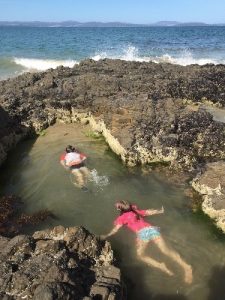 Before you say, ‘no, I’m happy for my children to explore,’ consider whether you have called your children down from the top of a tree, told them to stop running and jumping over rocks, moved your child away from a campfire or yelled out ‘be careful’ out of fear that they might get hurt?
Before you say, ‘no, I’m happy for my children to explore,’ consider whether you have called your children down from the top of a tree, told them to stop running and jumping over rocks, moved your child away from a campfire or yelled out ‘be careful’ out of fear that they might get hurt?
We all want to know that our children are safe, but when we look at children’s play, is it really safe to limit a child’s natural desires to explore? Is it really safe to eliminate opportunities and time for children to discover what they are really capable of?
As a parent, I have been on this same journey myself. Pulling back to let my children go off on their own exploratory adventures was scary at times but the benefits of these playful, challenging and exciting moments have been a joy to observe. More importantly, the benefits far outweigh the worry of the ‘what if’s’.
Some of the benefits I have seen for my children from their time out exploring and participating in adventurous play have been:
- Seeing them challenge their own abilities, showing confidence in what they are capable of achieving and watching them beam with pride when they conquer new challenges.
- Using their imagination as they get absorbed for hours creating their own stories and constructing props from the resources they have found on the land around them.
- The wonder, questioning and enquiry they express through the discovery of interesting aspects they find in nature.
- The respect and value they show for the simple things in life, all through the time they have spent exploring the outdoors.

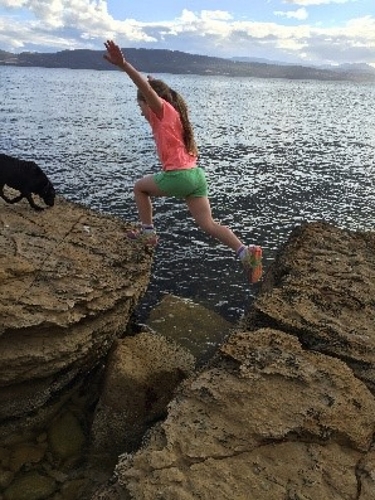
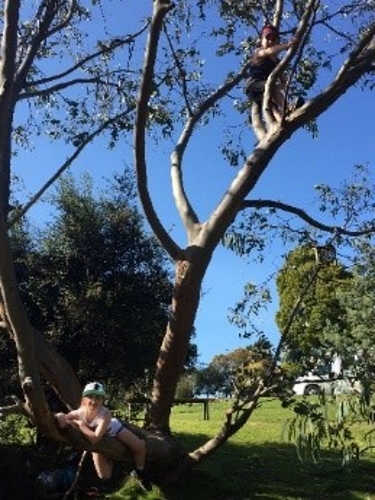
Sometimes we are tempted to set age boundaries and restrictions when children want to engage in challenging adventurous play.
We do this for good reasons -because it is our responsibility for children to be safe – but what is the underlying message for our children? What if we are teaching them that they can’t instead of empowering them to believe in themselves, challenge themselves and feel a sense of pride when saying ‘I can’!
I had an experience of this recently when we took a group of school age children to explore the beach and bush surroundings. Children above grade 3 were given the opportunity to climb up to a large boulder to sit on. Some younger children showed an eagerness to take on this challenge – so once the older children had finished we decided to offer the younger children a go. The younger children climbed to their own capabilities and to where they felt safe. One child from Prep then confidently climbed to the top of the boulder and yelled down to tell us that he could climb like that because he comes to this place with his dad and this was his favourite place to play.
So, is it really appropriate to impose an age limit when setting boundaries for children when they want to explore and challenge themselves? Are we thinking about children as individuals, understanding their differences, their previous experiences, their culture and lifestyles and how each of these can influence their abilities?
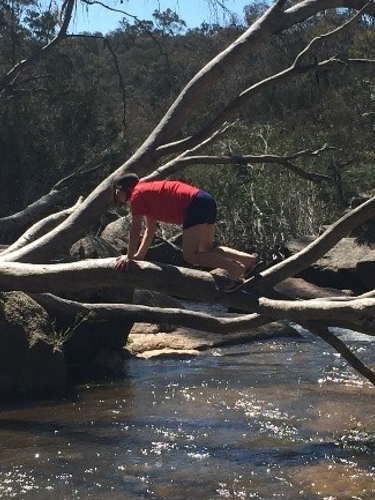
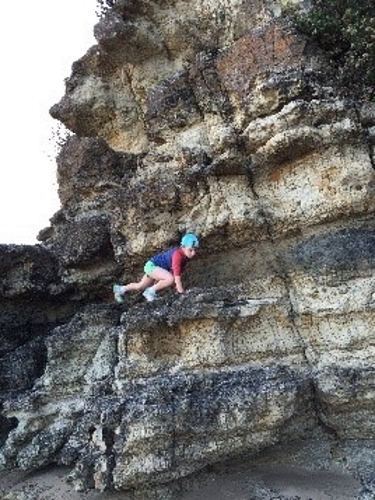

Next time you find the words, ‘be careful,’ on the tip of your tongue, stop and consider for a moment. Would asking the children questions to ensure they are considering the elements around them be a better approach? Would that then allow you to guide them to consider their own safety and to support them in figuring out the challenges they face?
Show them your support and your belief in them as capable and competent learners and they may surprise you with what they can accomplish.
Should we let children do blatantly dangerous things? Of course not. But there is a whole other danger when we don’t trust and listen to what children want to do, what matters to them and what they can do if given the opportunity.

